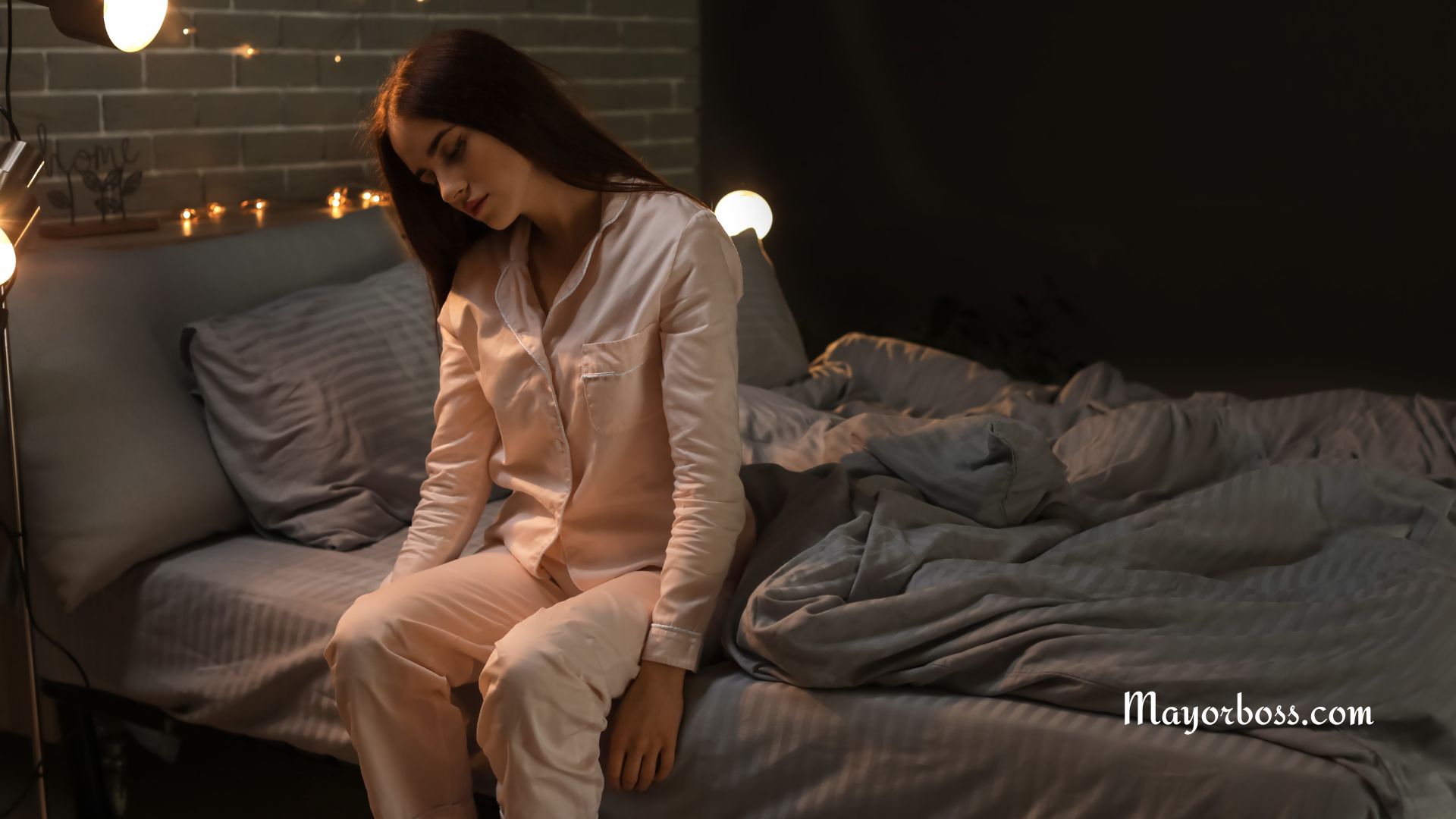Why Do People Sleepwalk?
Why do people sleepwalk? Sleepwalking is a sleep disorder where a person performs activities like walking, talking, or eating while still asleep. It often occurs during non-REM sleep and can be triggered by factors such as stress, sleep deprivation, or certain medications. Although usually harmless, sleepwalking can sometimes lead to injuries or disturb a person’s sleep quality.

What Is Sleepwalking?
Sleepwalking, also known as somnambulism, is a condition where you engage in activities that are normally performed when awake, but you do it while asleep. Think of it as your body being on “auto-pilot” without your conscious awareness. You might walk around, open doors, or even eat, all while snoozing. Interestingly, most sleepwalkers don’t recall their midnight adventures.
When Does Sleepwalking Occur?
Typically, sleepwalking happens during the non-REM stages of your sleep cycle. To be more specific, it’s most common in the deeper stages of non-REM sleep. This is contrary to popular belief, as many assume that sleepwalking takes place during the dream-filled REM stage.
Deep Sleep and Sleepwalking
In the deeper stages of non-REM sleep, your brain is less responsive to external stimuli. That means it’s less likely to wake up due to noises or movements. So, even though you’re moving around, your brain isn’t alert enough to fully wake you up. Essentially, you’re stuck in a state between sleep and wakefulness.
What Triggers Sleepwalking?
There are a variety of factors that can set the stage for a sleepwalking episode. Some of the major contributors include:
Stress
Stress plays a big role in many sleep disorders. When you’re stressed, your brain has a harder time transitioning through the sleep stages, making it easier for sleepwalking to occur.
Sleep Deprivation
Not getting enough sleep? Your body might react by sleepwalking. Sleep deprivation disrupts your normal sleep cycle and can make you more prone to wandering at night.
Medications and Substances
Certain medications, especially those that affect the nervous system, can cause sleepwalking. Likewise, alcohol and recreational drugs are known culprits.
Genetic Factors
In some cases, sleepwalking runs in the family. If your parents or siblings have a history of sleepwalking, there’s a higher chance you’ll wander at night, too.
Are There Any Risks?
While sleepwalking is usually harmless, there are instances when it can be risky.
Physical Harm
Moving around while you’re not fully awake puts you at risk for injuries. For example, you might trip over an object or bump into walls.
Sleep Quality
Your sleep quality can also suffer. Because sleepwalking disrupts your sleep cycle, you might not feel fully rested the following morning.
How Can You Manage Sleepwalking?
Though sleepwalking can be puzzling and sometimes worrying, there are ways to handle it.
Safety Measures
Make sure your environment is safe for sleepwalking. This means removing obstacles from your path and securing doors and windows.
Professional Help
If you find that sleepwalking is causing you or your loved ones significant distress, consult a healthcare provider for diagnosis and treatment options.
Sleep Hygiene
Maintaining good sleep habits can also help. Go to bed at a consistent time, limit caffeine and alcohol, and create a calming bedtime routine.
In summary, sleepwalking is a complex sleep disorder influenced by various factors. While usually harmless, taking steps to manage it can improve both your safety and sleep quality.
Frequently Asked Questions
What Is the Best Time to Consult a Doctor for Sleepwalking?
If sleepwalking episodes are rare and harmless, immediate medical attention may not be necessary. However, if you notice frequent episodes or if the sleepwalker is at risk of injuring themselves or others, it’s a good idea to consult a healthcare provider. Furthermore, if sleepwalking is affecting the quality of your sleep and overall well-being, seeking professional advice can offer solutions.
Can Adults Experience Sleepwalking?
Absolutely, sleepwalking is not exclusive to children. While it’s more commonly reported in kids, adults can and do experience sleepwalking. In adults, the condition can be triggered by stress, sleep deprivation, or medications. Additionally, lifestyle factors such as irregular sleep schedules or excessive alcohol consumption can contribute to sleepwalking in adults.
Is Sleepwalking Hereditary?
Yes, there’s a genetic component to sleepwalking. If someone in your family, like a parent or sibling, has experienced sleepwalking, your chances of doing so are higher. However, it’s worth noting that sleepwalking can also occur in individuals with no family history of the disorder. Genetics is just one piece of the puzzle; other factors like stress or medications can also play a role.
Can Sleepwalking Be Dangerous?
Generally, sleepwalking is considered to be harmless. However, there are circumstances where it can pose risks. Sleepwalkers may trip, fall, or bump into objects, which could lead to injuries. In extreme cases, they could unknowingly put themselves in dangerous situations, like walking out of the house. Therefore, it’s important to take safety measures to minimize these risks.
How Can I Prevent Sleepwalking Episodes?
While there’s no guaranteed way to completely prevent sleepwalking, certain strategies may help reduce its frequency. Improving your sleep hygiene by going to bed at the same time every night and creating a relaxing bedtime routine can be beneficial. Limiting the intake of alcohol, caffeine, and certain medications can also make a difference. If sleepwalking persists, consult a healthcare provider.
